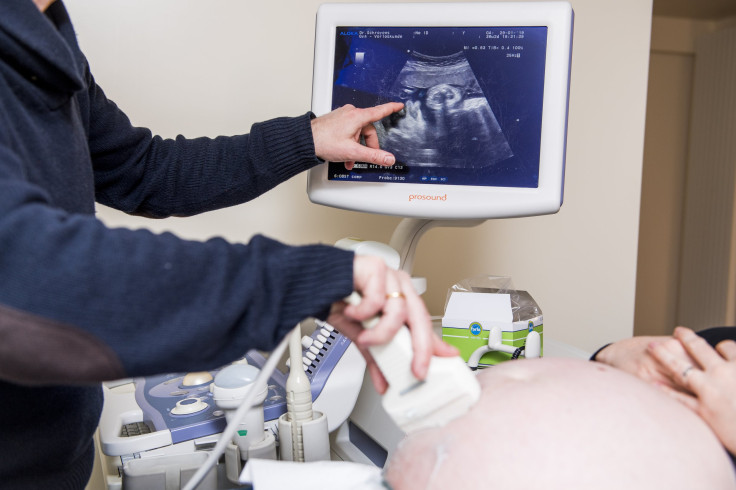What Is Vein Of Galen Malformation? Unborn Baby With Rare Condition Undergoes Brain Surgery
Doctors in Boston successfully performed a first-of-its-kind brain surgery on a baby still in the womb to treat a potentially deadly developmental condition, which caused rare blood vessel abnormality inside the brain.
The expectant parents, Derek and Kenyatta Coleman from Louisiana, received the dreadful news during their 30-week ultrasound. The doctor told them "something wasn't right in terms of the baby's brain and also her heart was enlarged," NY Post reported.
The child was diagnosed with a brain condition known as the vein of Galen malformation. A team of doctors at Boston Children's Hospital and Massachusetts General Hospital performed the in-utero brain surgery in March. Two days after the surgery, the infant was born with no birth defects and limited complications.
It was documented in a case study published in the journal Stroke.
What is a vein of Galen malformation?
A vein of Galen malformation (VOGM) is a type of rare blood vessel abnormality that causes arteries in the brain to connect directly with veins instead of connecting through capillaries.
A rush of high-pressure blood flows directly into the veins since capillaries cannot slow down the blood flow. The extra pressure causes issues like increased blood flow toward the heart and lungs, forcing the heart to work overtime and leading to congestive heart failure in some infants.
When the blood pressure in the arteries from the heart to the lungs rises, it can cause pulmonary hypertension.
VOGM can also cause brain injury and severe loss of brain tissue when the high pressure in veins prevents the infant's brain from draining adequately. In some cases, the situation leads to hydrocephalus - an enlarged head.
Treatment options
The most common treatment available for VOGM is endovascular embolization, a minimally invasive procedure that involves inserting a catheter into a child's brain to inject a special material into the blood vessels of the VOGM to close off the blood flow.
Clinical trial
After the diagnosis, the Colemans came to know about a clinical trial run by Brigham and Women's and Boston Children's Hospitals that could provide treatment before their baby was born. They knew the possible risks associated with the procedure, including preterm labor or brain hemorrhage for the fetus, but still decided to go ahead with the trial as they felt they had no other choice.
According to Boston's Children's Hospital, in the neonatal period – the first four weeks of a child's life – approximately one-third of all patients do not survive, one-third suffer moderate to severe neurocognitive compromise despite expert treatment and only one-third may reach adulthood without significant complications.
"We are pleased to report that at six weeks, the infant is progressing remarkably well, on no medications, eating normally, gaining weight, and is back home. There are no signs of any negative effects on the brain," lead study author Darren B. Orbach said in a news release.

Published by Medicaldaily.com



























